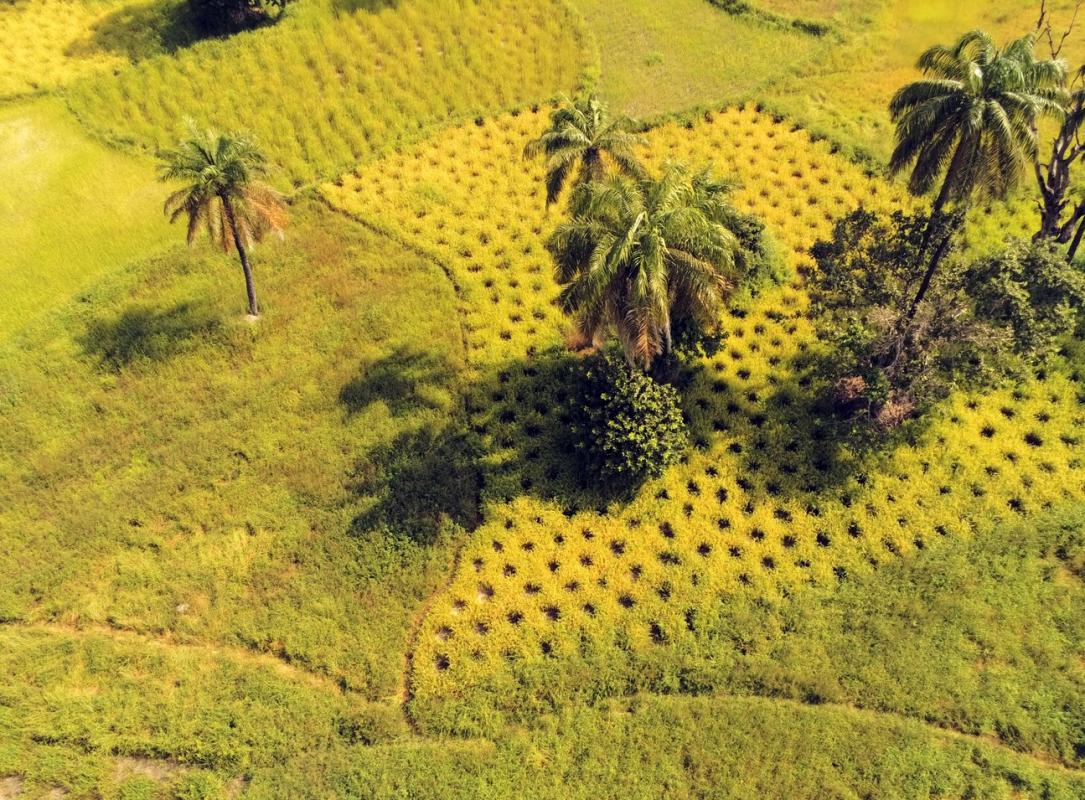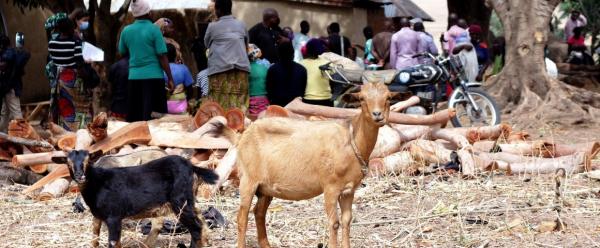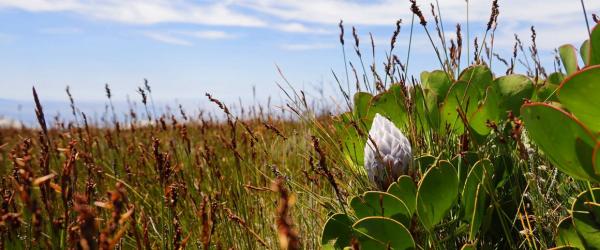Results & impact 28 October 2025
- Home
- CIRAD news
- News
- FAIR project agroecology in the Sahel
The FAIR project is banking on agroecology to boost the resilience of producers in the Sahel

Rice paddies near Kolda, Senegal © S. Taugourdeau, CIRAD
Could agroecology serve to boost, long term, Sahelian agricultural productivity, which is currently extremely vulnerable? This is the question to be addressed by the FAIR project, coordinated by CIRAD, which held a federative workshop in Ouagadougou in October. The project has 9 million euros of funding from the European Union and the Agence française de développement, and over four years, its ten partners from Europe and West Africa will be working on the ground in Burkina Faso, Mali and Senegal. "This is a very ambitious project", says CIRAD's Eric Scopel, a specialist in agroecological transitions. "We want to work with producers to introduce agroecological innovations that will improve their living conditions while posing less of a threat to natural resources. The originality of the project lies in taking a fresh look at the collective processes involving producers and R&D players, to ensure the sustainable adoption of those innovations in rural areas."
Leaving behind vulnerable, low-yielding farming systems
The project was prompted by the observation that agriculture in the Sahel faces a range of risks, headed by climate change. "It is a buffer zone that has been hit head-on, compounding the structural fragility caused by rainfall and temperature conditions", Eric Scopel points out. Farming systems in the zone primarily centre on food crops and traditional livestock production, and are characterized by low yields (< 1 t/ha) and high postharvest losses (> 30%). Some intensification pathways are emerging, but they are constrained by extremely unstable market conditions and substantial price fluctuations. Furthermore, the population in Africa is set to treble by 2100. High anthropic pressure has already meant rapid natural resource degradation (soil, water and biodiversity) and competition for agricultural and pastoral land use. "Farming systems are permanently unstable and less and less sustainable", the researcher adds. This critical situation, which is further exacerbated by insecurity due to terrorist movements, goes some way towards explaining why a major proportion of the population in the Sahel suffers from food and nutrition insecurity. According to Oxfam, in 2018 in the Sahel, almost 10 million people, including 1.6 million children, were suffering from acute malnutrition, and between 40 and 50% of people were living in extreme poverty.
Agroecological intensification
To counter that chronic food insecurity, FAIR is banking on agroecology, with activities planned on three levels. Firstly, that of local communities, backed by the experiences of the producers themselves and by contributions from R&D players, to build new production methods and techniques. Those methods and techniques concern soil management and fertility, and the incorporation of plant biodiversity into cropping systems. The interactions between crop and livestock farming will also be addressed, to switch from "a conflictual to a mutually beneficial relationship", as Eric Scopel puts it.
The services available to producers and their links with markets are vitally important in effectively supporting the introduction of these innovations. The second level of action is thus that of regional institutions (producer federations, local authorities, firms in local markets and value chains, local research organizations, training establishments, and NGOs). Using forecasting tools (workshops, role play) the whole range of stakeholders will be working together to look at the conditions for the emergence of the agroecology of tomorrow: access to value chains, access to seed, mechanization, specialist technical support, and training.
Lastly, on a national and intra-Sahel level, advocacy operations will be conducted to ensure that the project converges with other similar initiatives, and above all to attract political support from governments. The aim is to sustain and extend the agroecological transition of farming systems.
Knowing how to adapt to future changes
Intensifying and diversifying production will ensure better incomes for farmers and food and nutrition security for rural populations. Particular attention will be paid to the impact of agroecological intensification on women's empowerment and the distribution of workload between the sexes*. By enabling more efficient use of resources and inputs, the new agroecological intensification pathways will be less harmful to health and the environment.
In a context of high uncertainty as regards the extent and the diversity of future changes, the project's biggest challenge is ensuring that local players become self-reliant in terms of adaptation processes. "Until now, producers have often been waiting for researchers to act, while those researchers may have had a normative approach", says Eric Scopel. What will meet producers' expectations? What knowledge do they need? How can that knowledge be produced and disseminated? A new type of balance must be struck in terms of skill building and sharing. "We are banking on increased awareness on the part of producers of other aspects of the performance of farming systems and the positive impacts they could have on ecosystems", the scientist concludes.
* The FAIR project is one of the pilot initiatives of the EU Gender-SMART programme. As such, gender is a transverse issue to be addressed in how research is organized and the distribution of gender-based social roles within institutions, and on farms.
FAIR project partners
- Institut d'économie rurale (Mali)
- Institut de l'environnement et recherches agricoles (Burkina Faso)
- Institut sénégalais de recherches agricoles (Senegal)
- Institut de recherche pour le développement (France)
- Wageningen University & Research (Netherlands)
- Consejo Superior de Investigaciones Cientificas (Spain)
- Leibniz Centre for Agricultural Landscape Research (Germany)
- Agronomes et vétérinaires sans frontières (France)
- ENDA Pronat (Senegal)
The DeSIRA initiative
The DeSIRA initiative (Development Smart Innovation through Research in Agriculture) was launched during the One Planet Summit in Paris in December 2017. It is headed by the European Commission Directorate General for International Cooperation and Development (DG DEVCO) and is articulated with the Bill & Melinda Gates Foundation. It is aimed at boosting innovation in agriculture and the transformation of food systems in partner countries to make them more resilient to the effects of climate change. It seeks to strengthen research partnerships (Europe and global South), to promote research in partnership with development stakeholders, and to focus on impact-oriented research.



























